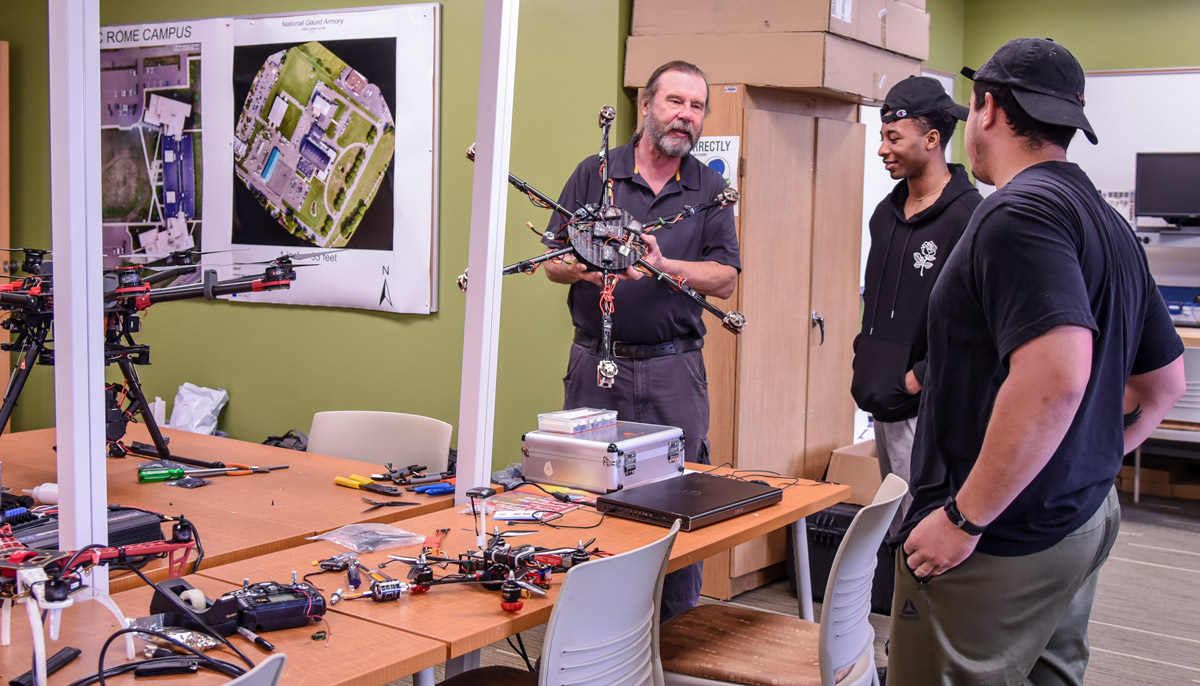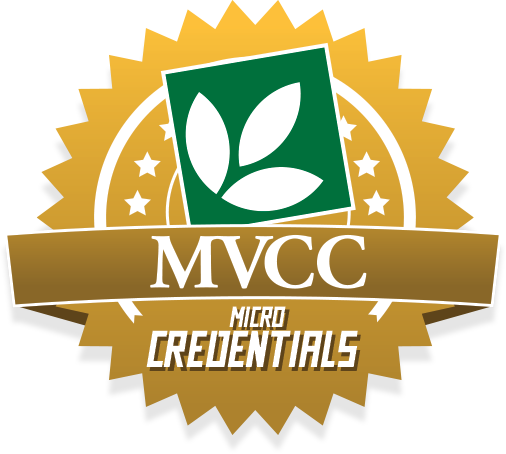
Take your career to new heights with our cutting-edge Remotely Piloted Aircraft Systems (RPAS) Maintenance microcredential. Designed to empower RPAS students with a significant mid-program milestone, the program also serves as a dynamic opportunity for current industry professionals to enhance their skill set. This essential microcredential bridges the gap between theory and hands-on proficiency in the ever-evolving RPAS field. Learn the intricacies of RPAS maintenance and routine servicing, refining your expertise to ensure these advanced aircraft not only meet their original design specifications but also operate under stringent safety conditions.
NYS Part Time Tuition Assistance
Students taking this microcredential may be eligible for NYS Part Time Tuition Assistance for Non-Degree Credentials. Learn more
Stackable

Gain these in-demand skills
- Integration of payload and programming with operational best practices
- Solid modeling
- CNC machining
- Laser engraving
- Routing
- 3D printing
- Electrical theory
- System Integration
- Control systems
- Autopilots
- Data links
- Power plants (motors)
- Servos/actuators
- Power sources
- Sensors
- Communication technologies
- Designing and building remotely piloted aircraft vehicles
- Testing and programming aircraft
- Maintenance and routine service of RPAS
- Conformity to design and safe operating conditions
